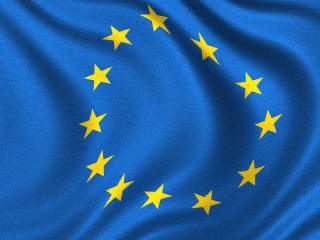Brexit and the Myth of Europe
Britain is a badly divided country on every level.
Whether or not “they took their country back,” as Donald Trump, currently inspecting his Scottish golf properties, put it, voters in the United Kingdom took a decisive step yesterday by supporting Brexit. What G. K. Chesterton referred to in his well-known paean to English identity as “The Secret People” showed up to defy predictions that Britons would, in the end, docilely vote to remain in the European Union. As Chesterton put it, “But we are the people of England; and we have not spoken yet. / Smile at us, pay us, pass us. But do not quite forget.”
Well, no one is forgetting now. Carl Bildt, the former prime minister of Sweden, has likened the importance of the vote to the fall of the Berlin Wall in 1989. It represented a clear repudiation of the continental elites whose project has been to create what has not existed since the days of Charlemagne—a united Europe.
This unification project began in the aftermath of World War II, though it had its antecedents in the nineteenth century, when figures such as Friedrich Naumann prophesied a German Mitteleuropa. Winston Churchill in his famous September 1946 speech in Zurich on what he called the tragedy of Europe declared, “We must re-create the European family in a regional structure called, it may be, the United States of Europe.” Even so, Churchill didn’t really want to subsume Great Britain itself into a supra-European structure. His mission, as far as possible, was to preserve the British empire. Since then, the United Kingdom has always been a restive partner within the European Community turned European Union. Most recently, it declined to join the eurozone.
But whether the Brexit decision will indeed strengthen the UK is an open question. There was a definite age gap on the Brexit vote. The Frankfurter Allgemeine Zeitung’s latest polls show that 20 percent of those between eighteen and twenty-four supported Brexit; sixty-five and older, 63 percent. Britain itself is a badly divided country on every level—north/south, city/town, young/old. Nor is this all. If Scotland manages to hold a second referendum, so as to become independent and remain inside the European Union, then we might witness the final destruction of the British Empire. Even Wales might secede. England could be reduced to a mere rump. Prime Minister David Cameron’s successor—Boris Johnson? George Osborne?—will be working overtime to try and ensure that this does not occur. The fortunes of the pound, not to mention the FTSE, will likely serve as an accurate index of the success of their efforts.
The elites who drive around in fancy automobiles and attend cozy conferences in Brussels face a similar conundrum. A contagion effect could occur on the continent, where France and Germany and Spain and Belgium might experience a real upsurge in nationalist sentiment, prompting governments there to hold votes on whether or not to stay or go. For now, there appears to be little will to bolster the EU in most European capitals—rather the reverse. Germany fears that with the UK exiting there will be even less inclination to enforce monetary rules inside Europe, with Berlin serving as the welfare agency for a bunch of listless spongers. As Henry Farrell rather politely observes in the Washington Post, doubling down on Europe “would require a degree of political cohesion and shared vision that is not apparent right now. More plausibly, the decision of the U.K. to leave will strengthen the forces that are pulling E.U. member states away from each other.”
As it stands, Germany has profited mightily from the European Union. It has enabled Berlin to rely on exports, both within Europe and to the rest of the world. The euro is far weaker than any revived deutsche mark. The collapse of the European dream would also come as a psychological shock to Germany. Its entire postwar identity has been predicated on the belief that it could subsume itself into Europe. If this project fails, as it may, then Germany could either emerge as an unleashed superpower in the middle of Europe—or it could simply lapse into economic malaise. Germany’s commitment to up its spending on the Bundeswehr suggests that there is at least some measure of urgency to pull up its collective lederhosen and assume a more assertive foreign policy stance.
The blunt fact is that the European Union has only itself to blame for its current predicament. Or maybe the flaw was in the conception itself. Henry Kissinger once asked, “Who do I call if I want to call Europe?” After Brexit, that remark seems more apt than ever.
Jacob Heilbrunn is editor of the National Interest.
Image: Flickr/Yanni Koutsomitis

